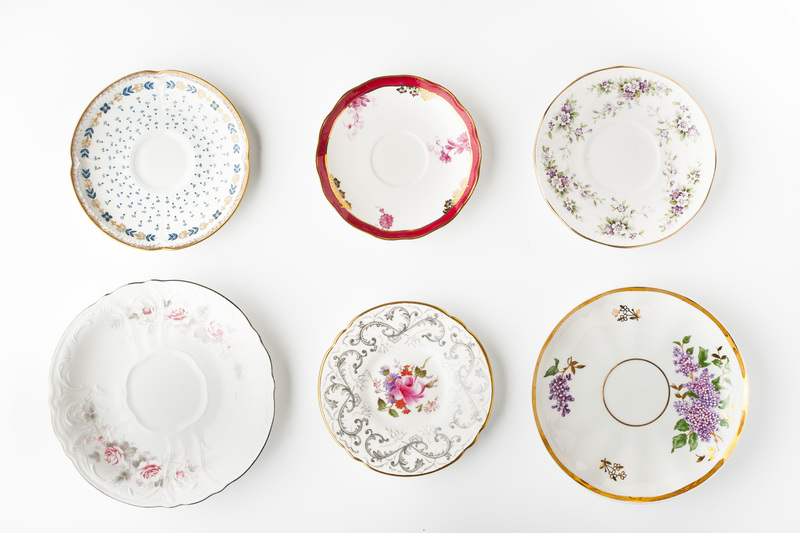Make Plant Pot Disposal Seamless and Simple: The Ultimate Guide
Are you wondering how to make plant pot disposal seamless and simple? With increasing awareness about sustainable gardening, disposing of old or unused plant pots responsibly has become both a challenge and an opportunity. Whether you're an avid gardener or just clearing out your garage, understanding the best ways to deal with unwanted plant pots is crucial for reducing waste and helping the environment.
Why Proper Plant Pot Disposal Matters
Disposing of plant pots responsibly goes beyond clearing up space. It's essential for:
- Reducing landfill waste: Most plant pots are made from plastic or ceramics, both of which can take centuries to decompose.
- Supporting recycling efforts: Proper disposal means materials can be reused, saving resources and energy.
- Protecting local wildlife: Inappropriate disposal can harm animals and disrupt ecosystems.
Making plant pot disposal easy and environmentally conscious is not just good for you, but also for your community and the planet.

Understanding Different Types of Plant Pots and Their Disposal Challenges
Before you choose the best disposal method, it is vital to recognize the various materials used in plant pots:
- Plastic pots: The most common type, often labeled with recycling codes.
- Ceramic and terracotta pots: Durable, but not widely recyclable.
- Biodegradable pots: Made from peat, coir, rice hulls, or other natural materials.
- Metal pots: Less common, but fully recyclable in most areas.
- Glass pots: Recyclable where glass recycling is available.
Each type requires specific handling--making plant pot disposal seamless and simple depends on knowing how to handle each material correctly.
Plastic Plant Pots
Plastic plant pots are lightweight and affordable, but they can be tricky to recycle due to mixed plastics or contamination from soil and plant debris.
Ceramic and Terracotta Pots
These pots are beautiful but pose disposal challenges since most municipal recycling does not accept ceramics. However, they are reusable and can serve many alternate purposes.
Biodegradable Pots
Composed of natural materials, these pots can often be broken down naturally, making their disposal simple if done properly.
How to Make Plant Pot Disposal Seamless and Simple
Ready to clear out your old pots? Here are practical, eco-friendly steps for plant pot disposal that are both effective and straightforward:
1. Clean Your Plant Pots
- Remove all soil, roots, and plant debris.
- Wash with water and mild soap to reduce contamination.
- Allow to dry before proceeding to recycling or disposal.
*Many recycling facilities require that pots are clean and free of residue* for efficient processing.
2. Research Local Recycling Options
- Check community guidelines: Many areas accept certain types of plastic pots in blue bins, while others require drop-off at special centers.
- Garden centers: Some nurseries or big-box stores offer take-back programs for used plant pots.
- Special collections: Look for annual recycling days or events organized by local gardening groups.
Making plant pot recycling easy is often a matter of finding the right program in your area.
3. Reuse or Repurpose Plant Pots
- Use old pots for starting seeds or propagating plants.
- Get creative: Turn pots into organizers, craft holders, or yard decorations.
- Offer them to neighbors, schools, or community gardens through donation.
Repurposing plant pots not only diverts waste from landfill but can also spark creativity!
4. Donate or Share
- List clean, usable plant pots on community boards or Freecycle.
- Contact local schools or gardening clubs.
- Many community gardens are always looking for container donations.
5. Compost Biodegradable Pots
- If your pots are labeled as biodegradable or compostable, add them to your home compost--check guidelines first.
- Some city composting programs also accept these materials.
Advanced Tips to Make Plant Pot Disposal Seamless and Simple
Identify Recyclable Codes
Most plastic pots feature a recycling code on the bottom:
- Code 2 (HDPE) and Code 5 (PP) - commonly recyclable.
- Codes 3, 4, 6, and 7 - less frequently accepted in curbside bins.
Sorting your pots by code simplifies recycling for both you and the facility.
Join a Pot Return Program
- Large garden retailers (like Home Depot or Lowe's in the U.S.) often have seasonal return bins for plastic pots.
- Local nurseries may partner with recycling companies to process pots that can't go in regular bins.
Participating in these programs makes plant pot disposal seamless and simple for consumers.
Creative Repurposing Ideas for Old Plant Pots
Give your plant pots a second life with these innovative uses:
- Storage caddies: Use plastic pots to organize tools, cables, or craft materials.
- DIY planters: Paint and decorate old pots for a fresh look.
- Bird baths or feeders: Upside-down ceramic pots make perfect stands.
- Toy bins or sandboxes: Large, sturdy pots are excellent for keeping toys tidy outside.
With a bit of imagination, plant pot reuse can be just as rewarding as recycling!
Choosing Eco-Friendly Plant Pots for Easy Disposal
Prevention is the best strategy when considering how to make future plant pot disposal seamless and simple. The plant pot market now offers many more sustainable options:
- Biodegradable pots: Decompose naturally and can often be planted directly into the ground.
- Pots made from recycled materials: Support the recycling economy by choosing pots made from post-consumer waste.
- Terracotta and ceramic alternatives: While not recyclable, these pots can last decades if reused.
*Choosing sustainable pots reduces landfill waste and future disposal challenges.*
Look for Innovative Products
- Fibre pots made from coir, rice husks, or peat are sturdy and compostable.
- Recycled plastic pots are often marked with clear disposal instructions.
By making thoughtful purchases now, you ensure plant pot disposal stays seamless and simple later on.
The Environmental Impact of Responsible Plant Pot Disposal
Proper disposal choices can impact more than just your garden:
- Conserving resources: Recycling reduces the need for new raw materials.
- Cutting greenhouse gases: Landfilled plastics and ceramics do not degrade and contribute to pollution.
- Protecting waterways: When pots are recycled or reused, fewer plastics end up in rivers and oceans.
Even small personal choices make a big difference in supporting environmental health and sustainability.
Frequently Asked Questions About Seamless Plant Pot Disposal
Can all plant pots be recycled?
No. Only certain types of plastic pots, and in some regions, specific ceramics or metals can be easily recycled. Always check with your local program.
What should I do with broken plant pots?
Broken ceramic, terracotta, or concrete pots can be reused in landscaping as drainage material or garden edging. Only some large facilities accept broken ceramics for recycling.
Are biodegradable pots really compostable?
Yes, but follow the disposal instructions. Some need high-heat or commercial composting to break down fully, while others can be added to a home compost pile.
Can I put plant pots in my regular recycling bin?
Often, only clean, empty plastic pots marked with specific recycling codes are accepted. Check your area's recycling guidelines for instructions.

Summary: How to Make Plant Pot Disposal Seamless and Simple
Disposing of plant pots shouldn't be a headache! By following the tips outlined here, from identifying your pot materials to exploring local recycling and creative reuse options, you can make plant pot disposal seamless and simple for yourself, your community, and the environment.
- Clean and sort your pots by material and recycling code.
- Find local recycling or return programs for plastic pots.
- Repurpose or donate pots to extend their life.
- Choose sustainable pots whenever possible for future gardening projects.
Less waste. More green. A cleaner planet. Make plant pot disposal the easy part of your gardening journey!
Start Today and Make Plant Pot Disposal Seamless and Simple
Ready to transform your gardening clean-up routine? Implement these strategies and encourage friends and neighbors to do the same. With a little effort, plant pot disposal can be both effortless and eco-friendly.
Have more tips or experiences? Share your favorite plant pot disposal methods in the comments below and help grow a greener community!